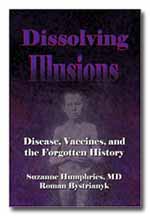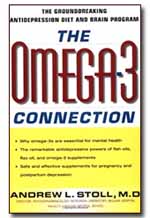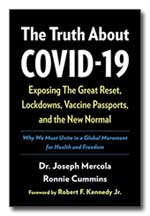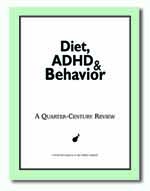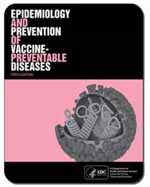 Circulation, Vol 144, Issue Suppl_1, Abstract 10712
Circulation, Vol 144, Issue Suppl_1, Abstract 10712
For about 8 years, Dr. Steven Gundry had been monitoring a group of 566 patients with a PULS (Protein Unstable Lesion Signature) test, and they averaged an 11% risk of having an acute coronary event, such as a heart attack, within 5 years. (After all, these were his patients and he is a cardiologist, so we can expect their risk to be elevated).
When Dr. Gundry tested these patients again after they had taken the Covid-19 vaccine, he found their average risk had more than doubled to 25%.
Dr. Mercola’s November article about these findings can be found here. For your convenience, I will paste below his “Story at a Glance.”
STORY AT-A-GLANCE
![]() Using the PULS cardiac test, researchers have found Pfizer and Moderna mRNA COVID shots dramatically increase biomarkers associated with thrombosis, cardiomyopathy and other vascular events following vaccination
Using the PULS cardiac test, researchers have found Pfizer and Moderna mRNA COVID shots dramatically increase biomarkers associated with thrombosis, cardiomyopathy and other vascular events following vaccination
![]() Pre- and post-injection PULS tests for 566 patients were compared. On average, their PULS scores went from an 11% five-year risk for acute coronary syndrome, to a more than double, 25%, five-year risk
Pre- and post-injection PULS tests for 566 patients were compared. On average, their PULS scores went from an 11% five-year risk for acute coronary syndrome, to a more than double, 25%, five-year risk
![]() Those who got the injection for fear that COVID-19 might adversely affect their heart now face the grim reality that they’ve exchanged a potential risk for a more certain one
Those who got the injection for fear that COVID-19 might adversely affect their heart now face the grim reality that they’ve exchanged a potential risk for a more certain one
![]() Another paper details how the mRNA shot can cause thrombocytopenia (low platelet count) through a mechanism that involves the activation of platelets by antibodies against the spike protein (anti-spike antibodies)
Another paper details how the mRNA shot can cause thrombocytopenia (low platelet count) through a mechanism that involves the activation of platelets by antibodies against the spike protein (anti-spike antibodies)
![]() A mystery that remains to be solved is why only certain people with antibodies to the spike protein (anti-spike antibodies) go on to develop symptoms of platelet activation and thrombocytopenia. One hypothesis is that only a subset of the anti-spike antibodies formed after vaccination can activate platelets and cause thrombocytopenia
A mystery that remains to be solved is why only certain people with antibodies to the spike protein (anti-spike antibodies) go on to develop symptoms of platelet activation and thrombocytopenia. One hypothesis is that only a subset of the anti-spike antibodies formed after vaccination can activate platelets and cause thrombocytopenia
Dr. Gundry concluded: “the mRNA vacs dramatically increase inflammation on the endothelium and T-cell infiltration of cardiac muscle and may account for the observations of increased thrombosis, cardiomyopathy, and other vascular events following vaccination.”
Abstract || Dr. Mercola’s article on this subject
Related papers referred to by Dr. Mercola in his paper above:
-
- SARS-CoV-2 spike vaccine-induced thrombocytopenia
- Mayo Clinic: Acute Coronary Syndrome
- Appelbaum 2021: SARS-CoV-2 spike-dependent platelet activation in COVID-19 vaccine-induced thrombocytopenia
- Lee 2021: Thrombocytopenia following Pfizer and Moderna SARS‐CoV‐2 vaccination
- VAERS-Nov-12-2021
- Bhakdi, 2021: Urgent open letter from doctors and scientists to the European Medicines Agency regarding COVID-19 vaccine safety concerns
NOTE: There is an “expression of concern” on Dr. Gundry’s abstract. I tracked it down, and it seems to be a complaint that the abstract contains typographical errors and uses anecdotal information. It is true that there is one typo, as PULS is spelled “PLUS” when first introduced, but I have seen far worse in published papers. Later, the author wrote “pts” for “patients” but the intent is certainly clear. There are no other typos. The name of the paper was changed to please the reviewers. I cannot imagine why testing a group of patients before an intervention (the vaccine) and again afterwards would be called “anecdotal.” While it is not a double-blind study, it is certainly a valid design, called quasi-experimental or trend analysis. My best guess is that somebody didn’t like the results — which are admittedly horrific — and is trying to downgrade the study.






